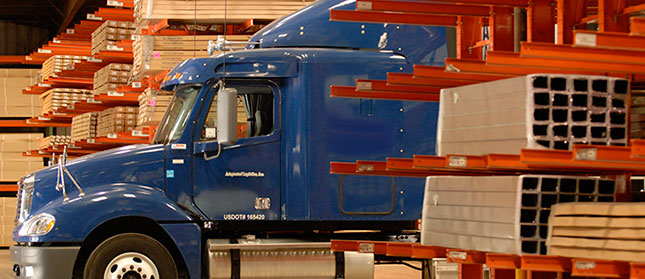Canadians are wondering if recent disruptions in the European supply chain can also occur here.
More than any other time in recent memory, Canadians have come to appreciate and understand that our nation’s economy moves by truck and truck drivers are critical to keeping our factories open and stores shelves full.
The Canadian Trucking Alliance, which represents over 5,000 Canadian motor fleets, wants to assure the Canadian public that our industry and professional workforce are cooperating with customers and all levels of government through the pandemic to ensure all Canadians continue to have access to all the products and essential goods our economy depends on.
This is not to dismiss the challenges the Canadian supply chain faces – because they are indeed very real. The Canadian supply chain has been fragile throughout the COVID-19 crisis and some uncertainty persists, but with businesses and governments working together we can overcome many of these challenges to safeguard against widespread disruptions while emerging from these extraordinary times with a stronger and safer truck transportation sector.
There is no escaping the fact the trucking industry is facing a significant labour shortage of commercial drivers. According to Trucking HR Canada, there were nearly 20,000 vacant truck driver positions this year. Even before COVID-19 emerged, the trucking industry already faced a sharp labour crunch. A pre-COVID report published by the Conference Board of Canada found that there could be 30,000 to 40,000 jobs vacancies for Canadian truck drivers by 2023.
The pandemic has only made this capacity crunch worse as more drivers – already one of the oldest workforces in Canada – increasingly choose to retire.
The labour shortage has also extended to other critical industry positions, like heavy truck mechanics, which is causing longer periods of downtime for equipment in need of repair. Additionally, the industry is currently facing a shortage of pre-owned equipment and significant delays in new equipment deliveries for trucks and trailers. Wait times for new equipment – currently between eight months and over a year – is more than three times longer than normal. Furthermore, the lack of equipment is creating issues for shippers in the supply chain who rely on trailers as mobile warehouses to store preloaded goods for pickup.
There are several actions the industry is taking to mitigate the combined disruptions and economic impact caused by labour shortages, including a national recruitment campaign to attract a new generation of workers; ongoing training; competitive compensation packages and flexible work schedules and giving drivers power over deselecting customers who treat drivers poorly and unnecessarily detain drivers and waste their limited time at loading docks.
Companies purchasing trucking services who do not want drivers to deselect them can be ‘shippers of choice’ and limit potential service disruptions by eliminating as much detention time as possible, loading unloading in a timely manner and treating drivers with respect.
Meanwhile, the government can act in several ways:
- Trucking receives a much smaller share of training funding than other related sectors. CTA is calling on the federal and provincial governments to provide known, trusted trucking companies greater access to training dollars to assist a new generation of Canadians in becoming safe and compliant commercial vehicle operators;
- Trucking also has very limited access to foreign labour. With declining birth rates in Canada, trucking, like all sectors of the economy, will rely on new entrants for sustainable growth. CTA is calling on federal provincial governments to provide known/trusted trucking companies greater access to foreign labour so newcomers to Canada can learn to become professional truck drivers from safe and labour-compliant fleets;
- The pandemic has brought to the surface a preexisting problem in trucking – the growth of unscrupulous trucking fleets who use the underground economy, cheat on tax and labour rules and sidestep safety regulations to lower operating costs and attract drivers away from safe and compliant fleets. CTA is asking the government to broaden national enforcement against the practice – known as Driver Inc.
Governments and the supply chain must continue to work together to keep Canada moving.


